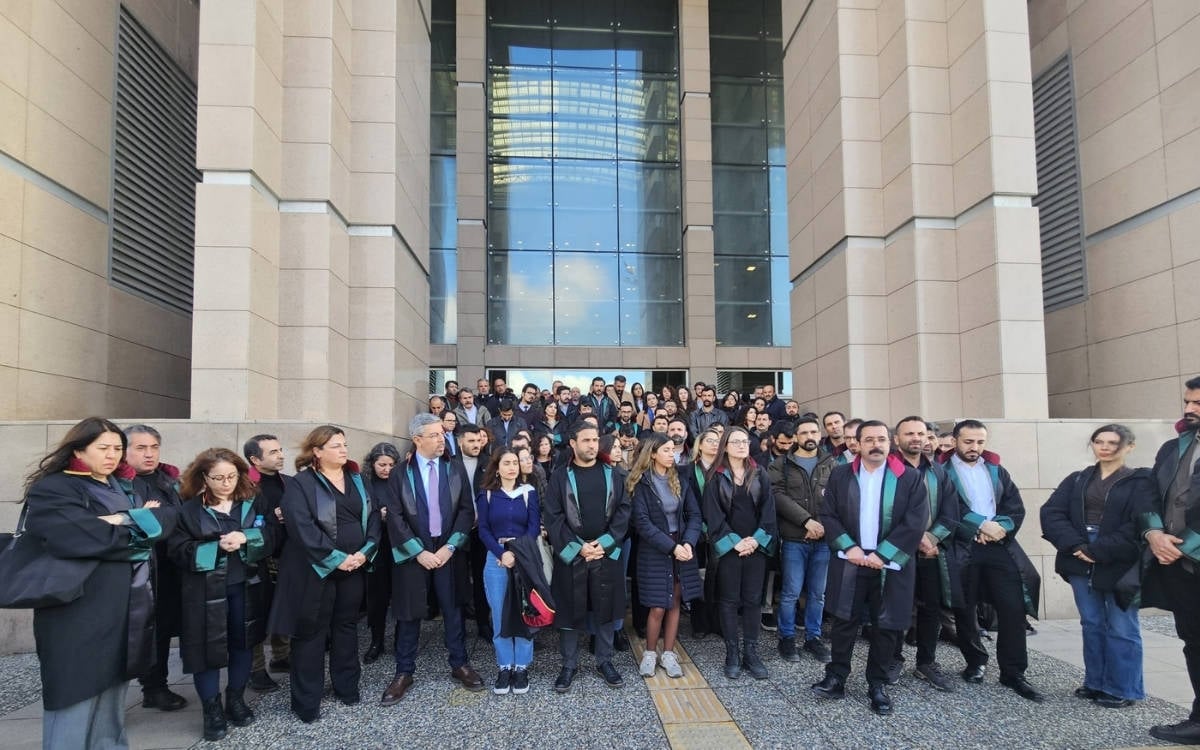The Sulukule Volunteers Association was founded in 2010 in Karagümrük, İstanbul, to help children overcome barriers in education and strengthen their social cohesion.
Responding to the challenges brought about by urban transformation, the association operates with goals such as preventing school dropouts and providing children with the necessary support for their nutrition and socio-emotional development.
Prioritizing the view of children as rights-holders and supporting their well-being, the association aims to create long-term social impact.
We spoke with the Sulukule Volunteers Association about their work and the importance of providing one free meal at schools for children, as well as their proposed solutions on this issue.
Viewing children as rights-holders
Could you tell us about the work your association carries out for children?
Our story begins during the urban transformation process when children were losing their connection to school. At that time, before the association even existed, our founding volunteers regularly escorted children to school, provided nutritional support, and worked to prevent school dropouts. In other words, from our very inception—and even before that—we have been working to prevent children from dropping out of school, to ensure they receive nutritional support at school, and to promote the idea of schools as protective environments. After all, if a child is not at school, they are likely on the streets, where the risks for children are extremely high.
Our motivation in this field is to shift the perception of children from being merely "the future of society" to recognizing them as rights-holders in their own right.
As the Sulukule Volunteers Association (SGD), we were established in 2010 in Karagümrük, İstanbul, to alleviate the psychosocial effects of the demolitions carried out under the Sulukule Urban Transformation Project and to prevent school dropouts in the area.
We work to support children’s socio-emotional skills and to strengthen social cohesion by creating spaces for interaction and sharing among children from different groups in this region, where discrimination is prevalent. Pursuing the goal of fair and equitable education for every child, we aim to support their well-being and reinforce their connection to school. We operate in communication with caregivers, teachers, public institutions, and school administrators, working in all areas where children are present. We believe it is important for every stakeholder interacting with children (caregivers, teachers, NGOs, etc.) to act with a holistic perspective.
- We conduct arts and sports-based workshops focusing on body movement with children aged 6–18 in the Fatih district, both at our association's premises and in schools.
- We provide individual psychosocial support to caregivers and children.
- We run empowering workshops for caregivers and teachers.
- We support school attendance through social assistance programs such as free meal provision and educational scholarships.
- We work with children over the long term. We value keeping them in contact with our volunteers, who can serve as role models.
- We aim to create a shared language by conveying our approach to the individuals and institutions we collaborate with.
‘Let children eat properly at school’
What is the significance of the phrase “Let children eat properly at school,” and why is this initiative important for children?
“Let children eat properly at school” is the slogan of a campaign we launched recently. Schools are places where children spend an average of seven hours a day, yet they often cannot access their right to adequate nutrition. By “eating properly,” we mean that children should have free access to nutritious, safe, filling meals that meet their developmental needs and cater to their sensitivities.
Our years of experience, reports from both us and other civil society organizations working in this field, as well as international studies, all show that providing one free meal a day at school can have significant benefits. These include improving children’s focus and comprehension, strengthening their bond with school, reducing child labor, preventing long-term illnesses, decreasing gender-based discrimination, and mitigating the effects of social inequalities.
According to data from the İstanbul Planning Agency (İPA) published in October 2023, at least one in four school-aged children in İstanbul goes to school hungry. Nutrition should fundamentally be a right for everyone, but given the extended time children spend in schools, we firmly advocate that providing one free meal a day at school can bring about substantial positive change.
Effects of skipping meals
How does going to school without breakfast or skipping meals impact children’s attention and focus skills?
In Turkey, many children are forced to skip at least one meal, and this pattern is repeated regularly. Almost all studies show that inadequate nutrition negatively affects a child’s physical and mental development. Difficulties in learning, focusing on lessons, and understanding what is taught are common issues. However, the problem extends beyond attention and focus skills. These circumstances lower children’s academic performance, weaken their connection to school, and lead to them being labeled as “unsuccessful” by teachers, which causes them to lose interest in attending school. All these factors pose a serious threat, leading to school dropouts and the risks associated with it.
‘Provided in over 100 countries’
How many countries offer “one free meal at school,” and what benefits does this practice bring?
Over 100 countries worldwide provide free school meal programs. According to the 2022 report by the World Food Programme (WFP), this means 418 million children have access to their right to nutrition. As mentioned earlier, this practice contributes positively to children’s physical, mental, and psychological well-being.
However, the benefits of free school meal programs extend beyond children. WFP reports indicate that such programs provide employment for approximately 4 million people in 85 countries. When local stakeholders are involved, this employment also supports local economies.
According to UNICEF’s 2022 data, Turkey ranks second after Colombia in child poverty, with a rate of 33.8%.
For the 2024–2025 academic year, which spans 185 school days, the calculated costs for providing one free meal per day are as follows: for preschool, 13.7 billion liras; for primary school, 50.1 billion liras; for middle school, 46.9 billion liras; and for high school, 54.6 billion liras. As stated by Minister of National Education Yusuf Tekin in the 2024 Budget Presentation Speech, this cost corresponds to 13% of the ministry’s budget.
The average daily cost of one free meal per child is: for preschool, 36.05 liras; for primary and middle school, 48.91 liras; and for high school, 61.77 liras.
As outlined in our report, we propose a two-phase model that includes analysis and mechanism development. In the analysis phase, at the start of each school term, research should be conducted to assess children’s needs. This includes general health screenings, identifying allergies and sensitivities, and determining the average caloric needs of children in each school. The findings should guide the preparation of meals and food packages tailored to specific requirements.
In the mechanism phase, the model must be adaptable based on the physical facilities of each school. The proposed model involves planning, pilot implementation and monitoring, model revision, widespread implementation, and oversight. The implementation would involve collaboration among various stakeholders: the Ministry of National Education and the Ministry of Health as implementers; schools, local governments, logistics companies, and professional organizations as supporters; the Ministry of Family and Social Policies, the Ministry of Agriculture, civil society organizations, and professional organizations as monitors and inspectors; and the central government, private sector, and international funds as funders. Ultimately, ensuring free nutrition support requires interagency cooperation and a holistic approach.
There is a strong perception that this issue cannot be resolved. However, good practices, calculations, and studies show that ensuring children can "eat properly" at school is indeed achievable. For more information about what we’ve discussed and additional insights, you can follow us on our website and social media channels or contact us via email.
(TY/VK)













